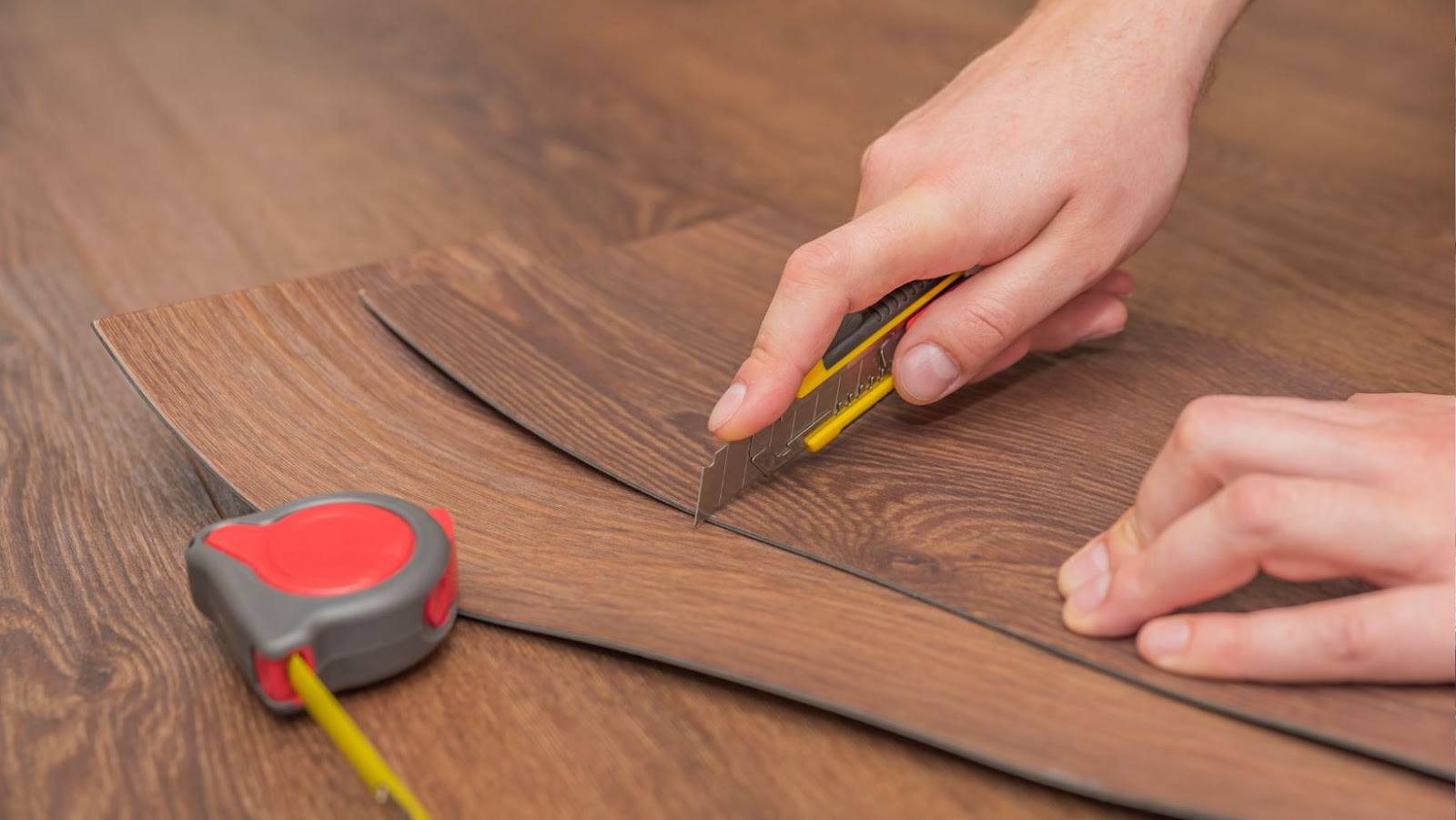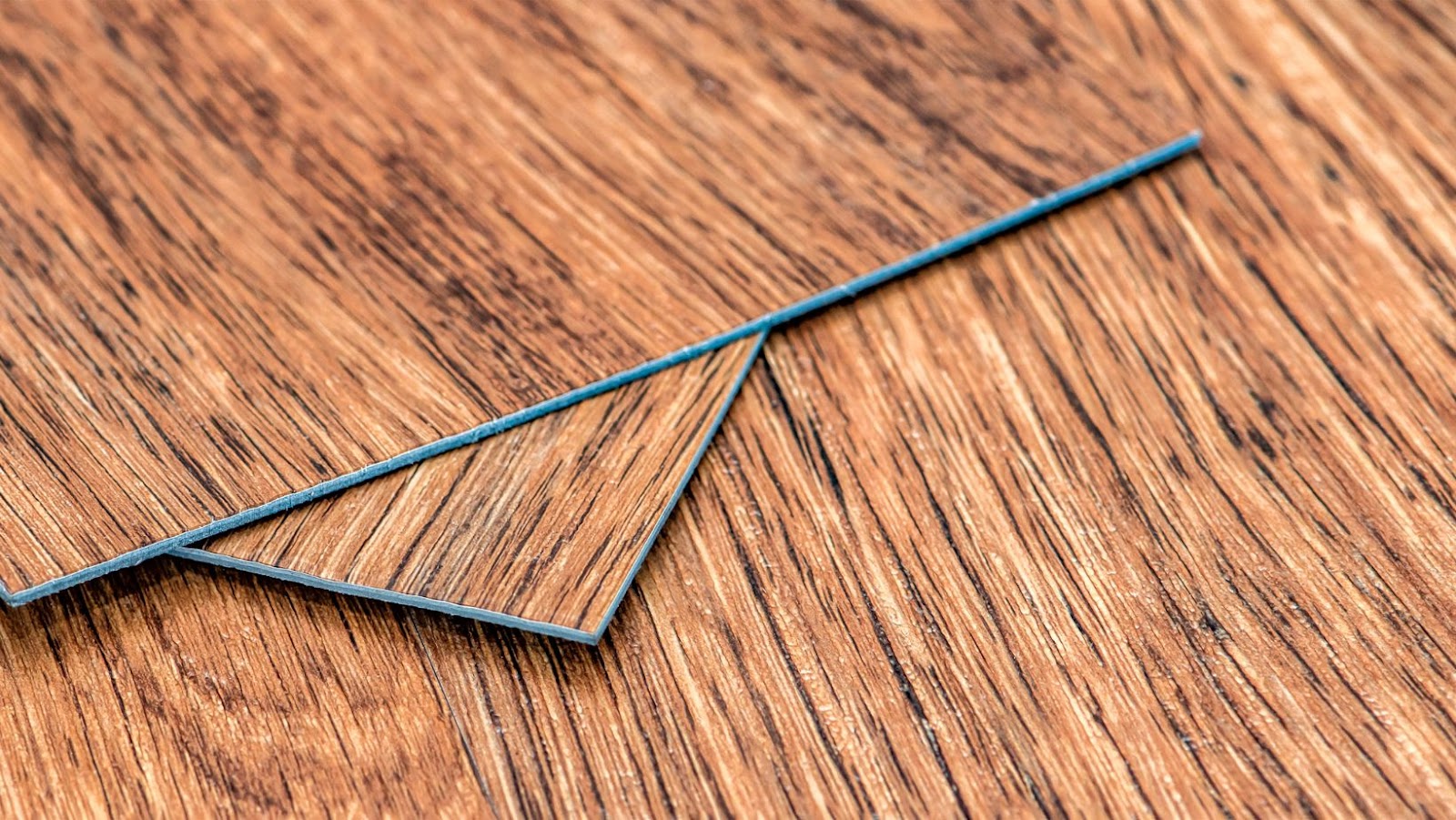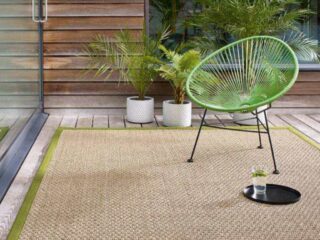
Vinyl flooring is a popular choice for homeowners because it is incredibly durable and wears well over time. It is a great option for any room in your home as its versatility and easy care make it extremely practical. This article will discuss how long vinyl flooring can last, the different types available and the advantages of choosing vinyl for your home. So, how long does vinyl flooring last? Read on to find out!
Definition of vinyl flooring
Vinyl flooring is a cost-effective and durable option for flooring in a variety of residential and commercial settings. It is a synthetic material that looks like natural materials such as wood, stone or marble. Vinyl consists of several layers of PVC (polyvinyl chloride) sheets that can be printed with patterns or textures to make it look more natural. It is often used in rooms subject to high foot traffic such as bathrooms, kitchens, hallways and corridors.
Vinyl’s durability helps it stand up to daily wear and tear, as well as water damage. In many cases, vinyl floors are considered the most resistant when compared to other surfaces such as hardwood or carpet. It can be resilient in extreme temperatures and resist fading due to UV exposure. This makes it ideal for rooms with direct sunlight or air conditioning units that increase humidity levels. The lifespan of vinyl flooring can range from about five years for basic residential grades, up to 20 years for thicker commercial-grade solutions with enhanced wear layers.
Overview of the durability of vinyl flooring
Vinyl flooring is a popular choice for many households, primarily because of its affordability, easy installation, and durability. With proper care and maintenance, vinyl can last for years and even decades – it all depends on the quality of material you choose.
When looking at the longevity of any flooring material, a key factor is how well it can stand up to wear and tear over time. Vinyl flooring is a durable option with high resistance to scratches and gouges that could occur from everyday use or pet traffic. It also stands up well to moisture from spills or standing water due to its waterproof core layer that prevents water or other liquids from seeping into the material underneath.
The type of vinyl also plays a role in how long your floor will last; thicker and higher quality luxury vinyl planks have greater scratch-resistance than thinner sheet vinyl materials, so their lifespan is likely longer if properly maintained. Finally, high-traffic areas may call for more frequent repairs depending on the weight of the furniture being moved around or the presence of any pets in your home.
Overall though, properly installed vinyl flooring can last anywhere from 10-20 years with yearly maintenance – making it an excellent option for families looking for flexibility and convenience at an affordable price! With proper care and maintenance your vinyl floors can stay vibrant and strong after many years of daily use.
Factors Affecting the Durability of Vinyl Flooring
Vinyl flooring is a popular choice for homes and businesses, but how long does it last? Durability of vinyl flooring depends on many factors, including the type of material used, the quality of installation, and the level of maintenance. In this article, we will explore the various factors that influence the long-term durability of vinyl flooring and what you can do to extend its lifespan.
Quality of the flooring
The quality of vinyl flooring is a major factor in determining its durability. Different qualities of flooring have different properties and levels of wear-resistance. The quality of the vinyl not only affects how long it will last, but also how well it can handle water, cleaning products, and other environmental factors.
In general, higher-end vinyl flooring will last longer than lower-grade options. This is because higher-quality products are usually made with high wear-resistant materials that are designed to withstand more use over time. High-end vinyl floors will also typically come with backing layers that add extra durability as well as a protective finish on top to help keep out dirt and debris.
Vinyl floor financing may also play a role in your choice. Since cheaper varieties are often found in bulk, choosing a cheaper substrate may cause you to need to replace the flooring sooner than if you had chosen a higher quality option from the start. That said, some backers provide lifetime warranties on their product’s wearability so selecting a quality backer can give you peace of mind when shopping for new vinyl flooring for your home or business space.
Installation of the flooring
Installation of the vinyl flooring can have a significant impact on its durability. It is important to follow installation instructions precisely and avoid common mistakes, such as using the wrong adhesive, to ensure that the vinyl lasts for several years. When installing vinyl flooring, it is essential to use a high-quality underlayment and quality adhesive for better long-term performance. If a thicker or harder material was used instead of standard fiber-based underlayment, this might increase its longevity and reduce effects from passing foot traffic or furniture movements. Furthermore, precision installation of the planks or tiles can minimize formation of pockets where dirt can accumulate and weaken the bond between pieces. Additionally, it is important to ensure proper spacing between pieces to avoid potential buckling issues resulting from thermal expansion and contraction. Taking these precautions will help keep your vinyl flooring looking like new for many years.
Maintenance of the flooring
To ensure that your vinyl flooring stands the test of time, it’s essential to maintain it properly. The key steps to follow are daily cleaning and periodic maintenance including mopping and spot-cleaning when necessary.
Daily Cleaning: Wipe away any dirt, debris or spills as soon as you notice them using a damp mop or cloth. Make sure not to use excess water; an overly wet mop could cause moisture seepage which can lead to damage. For tougher messes, you can use a mild cleaner specifically designed for vinyl floors.
Periodic Maintenance: A weekly schedule of damp mopping is recommended for all areas where moisture Contact may be high (kitchens, bathrooms etc.) Regularly vacuum or sweep the floor with a soft-bristle brush attachment to avoid scratching the surface of your vinyl flooring. If there’s any excess grime or dirt buildup over time, use a specialty cleaner specifically designed for removing soils stuck onto the surface of vinyl floors. Check periodically for any signs of wear and tear such as seam separation or discoloration so you can address it quickly before it becomes more serious or irreversible.
Pros and Cons of Vinyl Flooring
Vinyl flooring is a great cost-effective option for those looking to upgrade their flooring without breaking the bank. It is a durable and resilient material, making it an ideal choice for busy households. Vinyl flooring offers a wide range of design options, so it can be used to create a unique look. But how long does vinyl flooring last and what other benefits and drawbacks may it have? Let’s take a closer look.
Pros
Vinyl flooring has become increasingly popular in recent years due to its affordability, water-resistance and the wide range of patterns and colors available. The main advantage of installing vinyl floors is that they are very durable and can last for years with proper care and maintenance. Vinyl flooring is also extremely affordable when compared to other types of floors, such as hardwood or ceramic tile. It can easily be cut and installed without having to hire a professional installation team, so you also save money by doing the job yourself.
In addition to these advantages, vinyl flooring is low-maintenance, water-resistant, and lasts for many years when properly cared for. Most vinyl is made from either a single layer or multiple layers of PVC (Polyvinyl Chloride) which is then vacuum sealed with a protective finish that adds to its durability. Unlike other flooring materials like ceramic tiles or solid wood floors, vinyl will not fade in sunlight or be damaged by humidity or moisture – making it an ideal choice for bathrooms or any area that may have moisture seepage issues. Furthermore, vinyl floors are quite resistant to wear and tear due to its resilient surface which makes it difficult for dirt particles and dust mites to penetrate into the material. Overall, vinyl floors are one of the longest lasting types of floorings out there – usually lasting between 10-20 years with proper care and maintenance.
Cons
Vinyl flooring has many benefits, but it also comes with some possible drawbacks. Here are some of the potential negatives associated with installing vinyl flooring in your home:
-Durability: While vinyl can last a long time, it is not as durable as other materials such as tile or wood. It can scratch easily and may not last as long if it is in an area that has a lot of foot traffic.
-Appearance: Vinyl may be less attractive than other flooring materials and its ability to mimic the look of other materials may not be perfect. Over time, The vinyl may yellow or fade in areas exposed to high levels of sunlight.
-Costs: Vinyl flooring tends to be one of the more affordable options for flooring but is not necessarily cheap. It does offer some savings compared to carpet and hardwoods, but you may pay more over the long run if you need to replace or repair damaged portions.
How Long Does Vinyl Flooring Last
Vinyl flooring is an excellent choice for those looking for a durable, long-lasting flooring solution for their homes. Vinyl flooring is waterproof, scratch and dent resistant, and can last for years with proper care and maintenance. But how long exactly does vinyl flooring last? In this article we will discuss the durability of vinyl flooring, as well as the factors that can contribute to its longevity.
Average lifespan
Vinyl flooring is made with polyvinyl chloride (PVC) which is a type of plastic that is highly resistant to wear, tears, scratches and moisture. Vinyl flooring comes in a wide range of styles and colors and can mimic the look of real wood or tile. Typically, the average lifespan of vinyl flooring ranges from 10 to 20 years depending on the level of foot traffic it receives.
The life expectancy will also depend on how often you clean and maintain it on a regular basis. A well-maintained vinyl floor could last up to 25 years or more. However, if it’s not adequately cared for with regular sweeping, mopping and spot cleaning, the lifespan may be significantly reduced.
High quality vinyl floors are generally more expensive but will last longer than the thinner cheaper versions which can wear down more quickly. When choosing your floors, consider what level of traffic they will be exposed to so that you can purchase one that can handle your lifestyle needs as well as look good for years to come.
Factors that can increase or decrease the lifespan
The lifespan of vinyl flooring depends on a variety of factors, which can either increase or decrease its longevity. As with most materials, location plays an important role in determining the quality and wear-resistance of the material. Vinyl flooring placed in an entryway, for example, that suffers from increased foot traffic is more likely to wear out faster than one located in a seldom-used room. In addition to the level of foot traffic that it receives, other factors that can affect the durability and lifespan of vinyl flooring include:
– Type and thickness: Different types of vinyl flooring have varying levels of durability and self-protection, depending on the type and thickness (often measured by mil) used. Thicker floors are less likely to suffer damage caused by regular foot traffic.
– Maintenance: Regular care and maintenance is necessary to keep your floor looking its best and extend its life. Disregarding routine cleaning will accelerate wear patterns caused by grit or dirt as well as staining due to excessive moisture or spills.
– Installation: Properly installed vinyl flooring can last much longer than those installed incorrectly; adhesive usage plays an important role here as well. Get help from an expert if you’re unsure how to proceed with installation – though be aware that if not installed correctly or professionally it could void your warranty!
Conclusion
When it comes to hard surface flooring, vinyl is one of the best options available on the market for its combination of affordability, durability, and aesthetic appeal. On average, vinyl flooring can last up to 20 years, with some brands lasting even longer. With proper care, maintenance, and cleaning, vinyl flooring can last longer and maintain its beauty. In this article, we have discussed the longevity of vinyl flooring, the different types of vinyl flooring, and tips to extend its life.
Summary of the durability of vinyl flooring
Vinyl flooring is an incredibly durable and popular option for homes across the world. It is a cost effective and attractive solution to busy, messy areas of the home such as kitchens and bathrooms, but how long exactly should you expect it to last?
In general, vinyl flooring can last between 10 and 20 years depending on a number of factors such as: foot-traffic levels, quality of installation, quality of chosen materials and if proper cleaning & maintenance are carried out regularly. The type of vinyl chosen will also impact the longevity; thicker planks typically add more durability to your floor.
Regardless of the type chosen though, it is important to keep in mind that regular maintenance will extend its life. Regular sweeping or vacuuming and damp mopping with special vinyl cleaner will help keep dirt, particles and grime from settling in the ridges where bacteria can build up which could cause damage over time. It is also important to avoid using abrasive cleaners or scrubbing too hard when cleaning your floors – this may actually end up damaging them in the long run!
Recommendations for choosing and maintaining vinyl flooring
Vinyl flooring is a great choice for any consumer looking for an affordable and long-lasting flooring solution. With proper care and maintenance, it can last for years. There are several factors to consider when selecting vinyl flooring as it is available in a variety of textures, styles, and colors. When shopping for vinyl flooring, look for a product with a warranty that guarantees its durability. Additionally, ensure that the vinyl you purchase has been designed to withstand heavy foot traffic and frequent cleaning.
Once you have determined the type of vinyl you want to install in your home, consider how much care and maintenance it is likely to need on an ongoing basis. Vinyl is resistant to stains and spills but may require regular cleaning with mild detergent containing no bleaching agents or abrasives. If spills do occur on the surface of your vinyl floor, clean them up quickly to protect the material from damage or discoloration. Furthermore, regularly check for debris between planks or tiles as regular vacuuming can help extend the life of your flooring. Finally – consider investing in furniture coasters or mats under chairs or couches as this will help reduce denting from heavy objects being moved around on top of the flooring material.







